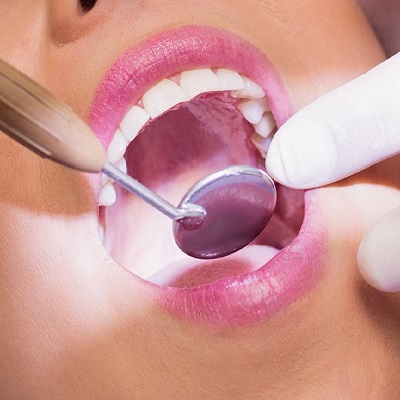When seeking the Best Wisdom Tooth Extraction In Dubai, patients often focus on the benefits of the procedure, such as relief from pain and prevention of oral health issues. However, like any surgical procedure, wisdom tooth extraction carries certain risks. Understanding these risks helps you make an informed decision while also ensuring you take steps to minimize complications. Here’s a comprehensive guide to the potential risks and how to manage them effectively.
Common Risks Associated with Wisdom Tooth Extraction:
Understanding the risks associated with wisdom tooth extraction helps in preparing for the procedure and the recovery process. While complications are rare when performed by experienced professionals, it’s essential to be aware of what could occur.
1. Pain and Swelling:
It’s normal to experience some degree of pain and swelling after surgery. This is your body’s natural response to tissue disruption during the procedure. While the pain usually subsides within a week, managing it with prescribed medications and cold compresses can make recovery smoother.
2. Bleeding:
Bleeding at the surgical site is another common risk. Patients may notice light bleeding for the first 24 to 48 hours post-extraction. Properly following post-operative care instructions, such as avoiding vigorous rinsing or using straws, can reduce the risk of prolonged bleeding.
Less Common Risks of Wisdom Tooth Extraction:
While rare, some patients may experience complications that require additional care.
1. Dry Socket:
A dry socket occurs when the blood clot protecting the extraction site becomes dislodged or fails to form. This condition can expose the bone and nerves, leading to intense pain. Dry socket is one of the most common complications after wisdom tooth extraction. Following aftercare instructions, such as avoiding smoking and sticking to soft foods, can help prevent this issue.
2. Infection:
Infections can develop at the surgical site if bacteria enter the wound. Symptoms of infection include fever, swelling that worsens after a few days, or a foul smell or taste in the mouth. Maintaining proper oral hygiene and taking prescribed antibiotics can minimize this risk.
Potential Long-Term Risks:
Though exceedingly rare, certain risks associated with wisdom tooth extraction can have long-term effects.
1. Nerve Damage:
Wisdom teeth located near nerves, such as the inferior alveolar nerve, can lead to nerve damage during the extraction. This may result in numbness, tingling, or a burning sensation in the lips, tongue, or chin. While this is typically temporary, in very rare cases, it may become permanent. Choosing a dentist who specializes in the best wisdom tooth extraction in Dubai significantly reduces this risk.
2. Sinus Problems:
For upper wisdom teeth, extraction can sometimes affect the nearby sinus cavities. In rare cases, the extraction might create a small hole between the mouth and sinus, leading to sinus infections or discomfort. Dentists use advanced imaging techniques to assess risks and avoid complications during the procedure.
Factors That May Increase Risk:
Certain factors may make wisdom tooth extraction more complex or increase the likelihood of complications.
1. Impacted Wisdom Teeth:
When wisdom teeth are impacted, meaning they are stuck below the gum line or grow at an angle, the extraction procedure can be more challenging. This increases the risk of complications, such as damage to adjacent teeth or infections.
2. Health Conditions:
Pre-existing health conditions like diabetes or blood clotting disorders can complicate healing. Informing your dentist about your medical history is critical for reducing these risks.
How to Minimize Risks with the Best Wisdom Tooth Extraction in Dubai:
Ensuring a safe and successful procedure begins with preparation and choosing the right dental provider.
1. Choose a Skilled Dentist:
Opting for a dental professional with experience in handling complex extractions is key. Clinics offering the best wisdom tooth extraction in Dubai use state-of-the-art technology and techniques to minimize risks and ensure patient safety.
2. Follow Pre- and Post-Surgery Instructions:
Dentists provide detailed guidelines to prepare for and recover from the procedure. Adhering to these instructions, such as avoiding food or drink before surgery and maintaining proper hygiene afterward, can greatly reduce the risk of complications.
Post-Surgical Care to Prevent Complications:
Your role in minimizing risks doesn’t end with the surgery. Proper post-operative care is essential to ensure a smooth recovery.
1. Oral Hygiene:
Gentle brushing and rinsing with a saltwater solution help keep the surgical site clean and reduce the risk of infection. Avoid brushing directly over the extraction site to prevent irritation.
2. Rest and Recovery:
Giving your body enough time to heal is crucial. Avoid strenuous activities for at least 48 hours after the surgery to prevent dislodging the blood clot or increasing swelling.
Signs That Require Immediate Attention:
While most post-surgical symptoms are normal, some signs warrant immediate medical attention.
1. Excessive Pain or Swelling:
If the pain or swelling worsens after the initial few days, it may indicate an infection or other complication. Contact your dentist promptly for evaluation.
2. Persistent Bleeding:
While minor bleeding is normal, persistent bleeding that doesn’t subside after applying gauze should be reported to your dentist.
Conclusion:
Choosing the best wisdom tooth extraction in Dubai significantly reduces the risks associated with this procedure. By being aware of potential complications and diligently following pre- and post-surgery care instructions, you can ensure a safe and comfortable recovery. Always communicate openly with your dentist to address any concerns and make your extraction experience as smooth as possible.





Comments